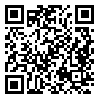Articles accepted at the time of publication
Back to the articles list |
Back to browse issues page
1- Department of Foreign Languages and Linguistics, Shiraz University, Shiraz, Iran , hossein_july1993@yahoo.com
2- Gulf University for Science and Technology
3- Department of Foreign Languages and Linguistics, Shiraz University, Shiraz, Iran
2- Gulf University for Science and Technology
3- Department of Foreign Languages and Linguistics, Shiraz University, Shiraz, Iran
Abstract: (172 Views)
Second language (L2) learners often struggle with the acquisition of the present perfect tense. However, input flooding and meaning-focused reading have shown some promise in helping L2 learners acquire an L2 more easily. In light of this, we designed an experiment to investigate whether input flooding and meaning-focused reading activities could help L2 learners comprehend and produce the present perfect tense. To this end, three intact classes from a high school were selected, and they were randomly assigned to three conditions: an input flooding-only condition, a meaning-focused reading plus input flooding condition, and a control condition. The results of the statistical analyses using one-way between-group ANOVAs indicated that incidental exposure through input flooding and meaning-focused reading activities enhanced both the target form’s comprehension and production. The results further demonstrated that meaning-focused reading activities combined with input flooding yielded a more facilitative role in enhancing both the comprehension and production of the feature than input flooding-only did. These findings suggest that incorporating implicit procedures, including input flooding together with meaning-focused reading activities, has the potential to not only help L2 learners comprehend the present perfect tense but also produce this linguistic form. Consistent with the Form Meaning Use (FMU) Model and the noticing hypothesis, our findings encourage the inclusion of structured exposure in language programs by language teachers and curriculum developers to hone L2 learners’ grammatical competence.
Article Type: مقالات علمی پژوهشی |
Subject:
language teaching
Send email to the article author
| Rights and permissions | |
 |
This work is licensed under a Creative Commons Attribution-NonCommercial 4.0 International License. |






